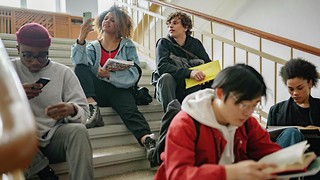Jesus cockerel row: idealism gets in the way of good
The response of activists in the Nigerian art debate does not help resolve historical tensions

On Thursday last week, Jesus College Student Union passed an historic resolution to return the bronze cockerel, or ‘okukor’ to Nigeria, the country from which it was taken in 1897, after the British had set the city of Benin ablaze. The actions of the JCSU in pursuing this matter are nothing short of commendable; in a place like Cambridge, achieving change takes about as long as it does a snail to run a marathon.
Those involved in the decision also provided a perfect example of how to achieve cultural change properly. Unlike the now infamous ‘Rhodes Must Fall’ campaign, which demonstrated as much delicacy as a bull in a China shop, the students of Jesus College participated in a wide-ranging discussion with various stakeholders. Unlike Rhodes Must Fall, whose leaders saw fit to condemn anyone from fellow students to the country of France for perceived white supremacy, the campaign to remove the cockerel has clearly been conducted with some modicum of respect. What is more, the fact that consultations are still ongoing to draft an even more powerful proposal is a testament to the patience and good will of the campaigners. It’s no surprise that the motion to repatriate the cockerel passed nearly unanimously.
However, there are also those who, throughout this process, let the perfect be the enemy of the good. In particular, some spoke about how the proposal to remove the statue was “unprofessional” and turned the “massacre of people into a joke”. Ironically, the person spouting these words supported the repatriation of the cockerel. Perhaps most bizarre is the fact that some criticised Jesus College for claiming that it was up to Jesus College to remove the okukor, as if that right belonged to somebody else. Again, everyone in the room was in agreement that the okukor needed to be returned. In one of the evening’s sillier moments, the fact that some considered returning the statue the “moral thing to do” was condemned as “paternal narration”. Again… you know what I’m going to say.
What this episode demonstrates is that too often students and campaigners find their causes riven with ideological disputes that miss the bigger picture. Why was it not possible to simply come to a consensus about the necessity of moving the cockerel, and move on? Instead we may have a process that drags on, and achieves little, only to return to the central agreement a month from now; all the while the cockerel spends longer away from its rightful home. In sum, there will be many words said and much ink spilt only to return to the underlying consensus – it is an exercise in intellectual futility. While the decision around returning a statue to its rightful home may seem minor – though, nevertheless, a just cause – this episode perhaps points to a broader and nefarious trend within student activism. In many social movements over the last decade driven by students, too often have we been concerned with ideological or moral purity over actually achieving change. Take Occupy Wall Street, for example; in perhaps one of the most absurd moments in recent activist history, John Lewis was prevented from addressing Occupy Atlanta.
For those who are wondering, no, not the John Lewis who sells overpriced clothes, the John Lewis who marched with Martin Luther King Jr. for civil rights. Because the activists in Atlanta believed that to let John Lewis speak would be implying that he was more important than other individuals – the direct quote being ‘no individual is inherently more valuable than any other’ – they denied him a platform to address the assembly. Instead, Lewis was whisked away to another meeting, and Occupy lost a passionate advocate.
It is precisely this kind of ideological purity that repeatedly prevents activists from being effective. If Occupy had actually been effective in courting congressional and public support, instead of driving them away, perhaps we would be having a real conversation about income inequality. Now, we are left with a carnival of a presidential election cycle. Bernie Sanders himself, a man who has done more than most to address issues of urban poverty, found himself interrupted at a rally by Black Lives Matter activists. Forgive me for being naïve, but isn’t it the worst strategy in the playbook to attack one’s allies?
Instead of developing a consensus around common causes, activists see fit to divide themselves around symbolic issues, such as the wording of a proposal to repatriate stolen art. This is particularly problematic for students like ourselves. Regardless of our political persuasion, I think the vast majority of us are motivated by some form of idealism, a desire to change things for the better. However, it takes time and it takes patience; it is not enough to scream from the rooftops or toil over the perfect wording for a resolution. What we need to change the world is solidarity, compromise and consensus. After all, Jesus College didn’t repatriate the okukor by being loud and obnoxious: they did it by being quiet, patient, and united.
 News / Deborah Prentice overtaken as highest-paid Russell Group VC2 February 2026
News / Deborah Prentice overtaken as highest-paid Russell Group VC2 February 2026 Fashion / A guide to Cambridge’s second-hand scene2 February 2026
Fashion / A guide to Cambridge’s second-hand scene2 February 2026 News / Christ’s announces toned-down ‘soirée’ in place of May Ball3 February 2026
News / Christ’s announces toned-down ‘soirée’ in place of May Ball3 February 2026 News / Downing Bar dodges college takeover31 January 2026
News / Downing Bar dodges college takeover31 January 2026 Comment / College rivalry should not become college snobbery30 January 2026
Comment / College rivalry should not become college snobbery30 January 2026









